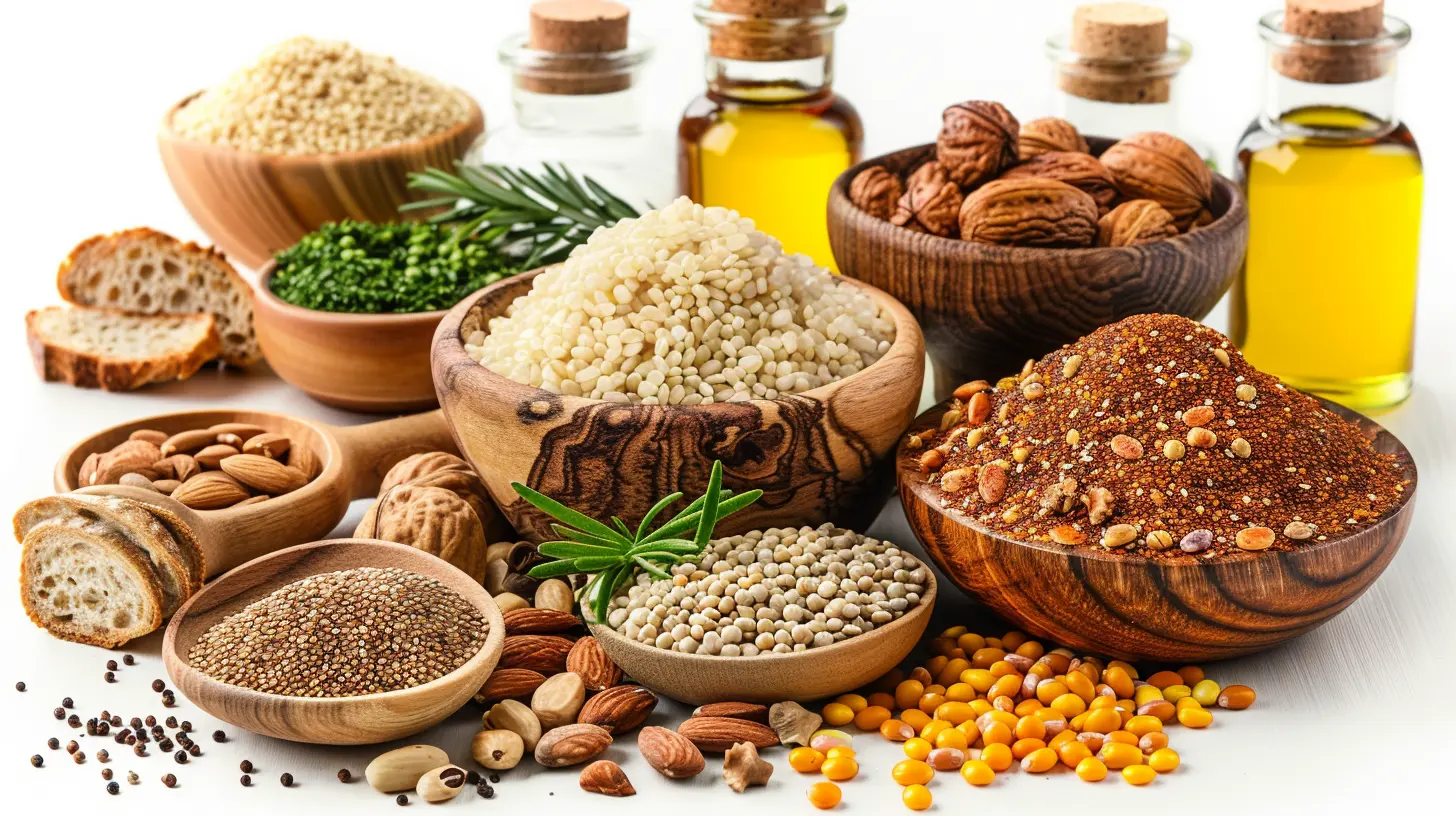Are Organic Foods Really Better for Your Health?
27 June 2025
Organic foods have taken the grocery aisles by storm, with labels boasting "certified organic," "non-GMO," and "pesticide-free." But are they really the superior choice for your health, or is it just clever marketing? With so much conflicting information, it’s easy to feel overwhelmed. Let’s break it down and see if organic foods live up to the hype.

What Does "Organic" Really Mean?
Before we dive into the health benefits, it's important to understand what "organic" actually means. Organic farming avoids synthetic pesticides, herbicides, fertilizers, and genetically modified organisms (GMOs). Organic livestock is raised without antibiotics or synthetic hormones and is given organic feed. Essentially, organic food is grown and processed using natural methods that aim to be better for both the environment and human health.But does this automatically make organic foods healthier? Let’s take a closer look.

Are Organic Foods More Nutritious?
One big question many people ask is whether organic foods contain more nutrients than conventionally grown foods. Some studies suggest that organic produce may have slightly higher levels of antioxidants and certain vitamins, but the differences are not always substantial.For example, a study published in the British Journal of Nutrition found that organic crops had significantly higher concentrations of antioxidants compared to conventionally grown crops. Antioxidants help combat oxidative stress in the body, potentially reducing the risk of chronic diseases.
However, the nutrient difference isn’t always dramatic. If you're eating a diet rich in fruits and vegetables—organic or not—you’re already doing your body a favor. The real advantage of organic food may lie elsewhere.

The Lowdown on Pesticides
One of the biggest selling points of organic food is reduced pesticide exposure. Conventional farming often relies on synthetic pesticides to protect crops from pests and diseases. Although these chemicals are regulated and deemed safe in small amounts, long-term exposure has raised concerns.The Environmental Working Group (EWG) releases an annual list called the "Dirty Dozen," which highlights produce with the highest pesticide residues. Strawberries, spinach, and apples frequently top the list. Choosing organic versions of these foods can significantly reduce your pesticide intake.
While washing produce can help remove some pesticide residues, it doesn’t eliminate them entirely. Organic farming, with its strict regulations on synthetic chemicals, may be a better choice for those looking to minimize their exposure.

Fewer Additives and Preservatives
Organic food regulations also limit artificial additives, preservatives, and food colorings that are commonly found in processed foods. Many processed non-organic foods contain synthetic additives that can have questionable health effects, such as:- Artificial sweeteners – Linked to metabolic issues and digestive problems.
- Preservatives like BHA and BHT – Some studies suggest they may be carcinogenic in high doses.
- Artificial food dyes – Some are associated with hyperactivity in children.
By opting for organic foods, you’re likely avoiding many of these questionable ingredients, leading to a diet that is naturally cleaner and potentially better for overall health.
Organic Meat and Dairy: A Healthier Choice?
If you consume meat and dairy, choosing organic might be a smart move. Conventional livestock is often treated with antibiotics and growth hormones to speed up production. Overuse of antibiotics in animals can contribute to antibiotic resistance, making infections harder to treat in humans.Organic meat and dairy come from animals that are raised on organic feed, given access to pastures, and not treated with synthetic antibiotics or hormones. Some studies have even shown that organic dairy contains higher levels of omega-3 fatty acids, which are beneficial for heart and brain health.
Is Organic Food Really "Cleaner"?
Many people assume organic food is completely free from harmful substances, but that’s not entirely true. Organic farms can still use natural pesticides, some of which may not be completely risk-free. Additionally, organic foods can still be contaminated during processing and transportation.However, organic standards are strict, and overall, organic foods tend to have significantly lower contamination levels compared to conventional options.
The Environmental Impact of Organic Farming
While this article mainly focuses on personal health, it’s worth mentioning that organic farming is generally better for the environment. It promotes soil health, reduces water contamination from synthetic chemicals, and encourages biodiversity. A healthier planet ultimately leads to a healthier population.
The Cost Factor: Is Organic Worth the Price?
Let’s be real—organic food can be expensive. A significant barrier for many people is the price tag, which can be 20-50% more than conventional foods. If budget is a concern, you don’t need to go 100% organic to make a difference.A good strategy is to prioritize organic for foods that tend to have the highest pesticide levels (like those on the “Dirty Dozen” list) while buying conventional options for foods with lower contamination risks (like those on the “Clean Fifteen” list).
Should You Go Organic?
So, are organic foods really better for your health? The answer isn't black and white. While organic foods may reduce exposure to harmful chemicals, contain fewer additives, and sometimes have higher nutrient levels, they are not necessarily a magical solution for good health.Eating plenty of fresh fruits, vegetables, whole grains, and lean proteins—regardless of whether they are organic or not—should be the main priority. If you can afford organic options or want to minimize pesticide exposure, they may be a great choice. However, what truly matters is maintaining an overall balanced, wholesome diet.
At the end of the day, the best diet is one that includes a variety of nutrient-dense foods, whether organic or conventionally grown. Your health depends more on your overall dietary patterns than whether your apple is organic or not.
all images in this post were generated using AI tools
Category:
Healthy EatingAuthor:

Arthur McKeever
Discussion
rate this article
2 comments
Zane McFarlane
Choose health, choose organic!
October 21, 2025 at 3:39 PM
Otto Roberson
Oh, absolutely! Because paying triple for slightly dirtier veggies is definitely the key to achieving eternal youth and flawless skin. Who needs science when you have organic magic?
July 3, 2025 at 3:07 PM

Arthur McKeever
I appreciate your perspective! While the benefits of organic foods can be debated, many people choose them for reasons beyond just health, including environmental impact and farming practices.


